- Tell the readers out there about you, some key part of your personality as well as your persona as a writer.
I love the body in motion. I love my body when I am as fluid as the ocean, swaying and twirling, sashaying and spinning, high heeling it in a silky, ruffled-hemmed skirt or prancing sensually under a fan of feathers. Dance energizes me, thrills me. I come alive when my body is free to express itself electrically, so if anyone would ever want to regale me, a word to the listening would be to clear a stage for the marriage of movement, music and me!
When I sit to write or read, I flow freely in another way. As I create, I slip into imaginary worlds and inhale the setting, stand up in the conflict and deeply feel the emotions coursing through my characters. Same as I can dance for hours, I can write twice as long, my body oftentimes complaining under such stillness and mental activity, usually in the heat of the night, all night.
- If You Love Me, Come is your second novel. Between your first and a flurry of short stories and poems, there was a ten year gap before this one was published. Why so long a hiatus?
Excellent question, a query I expected only from you. (thoughtful smile) I wrote the first novel while teaching high school English, during the summer months, sitting down to write daily. My baby was kicking and gurgling in his chair at my feet. Hours of quiet were mine for the taking. Consequently, I finished DOLLY: The Memoirs of a High School Graduate amid very little distractions in 1987. Though married at the time, usually, I lived a solitary existence outside of the classroom. In addition, a Sapphic butterfly, I was slowly coming out of the cocoon of my closet, and writing was a vehicle to birth that part of myself.
The more I wrote, the more the closet door opened. Eventually, I started writing my second novel, If You Love Me, Come, and somewhere after less than 100 pages in, my pen sighed, stopped, and ached for validation. That led to me sharing the opening chapters with the librarian at the high school in which I taught. She loved the story, the characters, and she suggested that I send what I had to Marie Dutton Brown, who was highlighted in a feature story in the Atlanta Journal at the time. I took a chance and called Ms. Brown one Sunday. She answered, said she wasn’t accepting new writers. Yet I continued to talk enthusiastically and eventually she reneged, asked to see the first 75 pages. When I finally sent them to her, she loved “the flavor of the South” in the writing and accepted me as a client.
My dream was finally coming into fruition. I could see my name in lights…until a power shortage left me fumbling. Consulting with the College Board, I stopped teaching to write full-time. My marriage crumbled. The closet door creaked closed behind me. And I discovered myself in a place I’d never been before; struggling to survive, I slipped into a deep depression and the novel was no more. Writing shorter, tighter, more intimate, immediate pieces saved me, until I returned to the novel, years later, and finished it to the tune of 600 pages. I sent the work to Ms. Brown, who loved it but directed me to cut it to 300 pages. More years lapsed, what with me thinking I adored the work as it was, and wondering how I could part with words or chapters. While I wavered and procrastinated, life and Ms. Brown moved on.
Eventually when I accomplished the objective, cutting the work to 333 pages, I met with a chilly reception in Ms. Brown’s New York office and was promptly informed me she was not accepting new authors. So I shopped it around in an atmosphere in which publishers were tightening their fiscal belts and met with a stream of rejections. It was a disheartening time, until I began writing for BLACK ROMANCE magazines and interviewed new author, E. Lynn Harris. He, too, had met with rejections on his first manuscript, which led to his decision to self publish, something I didn’t want to do, although my sister Glenda had persistently encouraged me to invest in myself, like Harris did with Invisible Life. The day came when I did precisely what I’d feared, and there was nothing to fear but fear itself.
- I’ve read a bit of the novel as well as the synopsis, but tell me in your own words what this new novel about?
If You Love Me, Come is the story of what happens when life takes you to the valley floor and you can make the decision to stay and wallow in your sorrows or go the only way Love beckons you to go: up.
Always when we feel lost, there is someone present, be it a stranger or a loved one, who mysterious appears, and takes us by the hand, encouraging us to follow, if we love him or her….if we love ourselves.
Free Roberts is no different, nor is her good girlfriend Sharmayne, her boyfriend, J.T., her sister Rhonda, her mother Pastoria, nor the woman who asks her father the same question for 28 years. Like all of us, each must learn to trust something greater than self.
- You’ve written very sensually in your previously published stories. Can we expect more of the same in this novel?
Definitely! In this novel, a smoldering sensuality burns when Free and J.T. come together and sizzles when Sharmayne and Nzinga fall into one another’s arms, although Pinky and her lovers know a different sort of give and take, that is, until a lover of a different ilk enters her world.
- Which of your characters from If You Love Me, Come is most like you, and in what way or ways?
(Soft laughter) Me gusta esa pregunta. Many of my characters are pieces of the main, me. Free fulfills one of my dreams of owning a bookstore, a community hub where people are able to come and lunch and read and socialize. She’s outgoing, positive and enigmatic. But Rhonda is an English teacher with one son and Pastoria is shrouded in mystery, while Pinky is consumed with a longing that aches to be satisfied. In the final analysis, we are all one.
- Parts of the novel have a feel similar to that of Zora Neale Hurston’s Their Eyes Were Watching God with the use of dialect and the strong connection of the characters to the natural world. Were you conscious of that while writing?
Although I adore the work of Zora Neale Hurston, I was conscious only of my grandmothers’ voices, especially my paternal grandmother, Sophie Mae Moss. She and my maternal grandmother, Pearlie Mae Young, made my family’s trips to the South delightful every summer we visited from Waterbury, CT. My mother passed away when I was in the ninth grade, and my grandmothers stepped in to take my siblings and me by the hand and guide us into young adulthood. Both women were amazing, enterprising, Southern matriarchs, loved and respected by many in the small towns of Tuskegee, Roba and Little Texas, Alabama.
- Which writer has had the greatest influence in your life?
Toni Morrison has awed me from the first time I cradled The Bluest Eye and marveled at the language, the working of the mind, the depths of emotion, the snapshot of a child’s mind, one in which the gift of blue eyes would mean transformation on many levels. Friends and colleagues confided their mixed admiration towards Morrison’s work over the years, telling me she exacted too much from them. They didn’t want to stretch, to give a fictional work that much mental energy, since escape was usually their desire, not mental rigor. But me…I love Toni for all of the reasons they complained of and countless more.
Toni teaches me to love language, to fall in love with words and meaning again and again, with each novel she publishes. She’s a workshop, a beloved college course. I love Paradise, though I haven’t treated myself to her novel Love as yet, what with me being immersed now in my own writing, publishing and promoting myself. I love the way Toni captures the voice of women from different social strata, with different experiences with society and men; I admire how she places them in memorable houses and history and breathes the breath of life into them, making them as unforgettable as African-American heroines from the annals of history.
I even discussed her work on Facebook, her latest novel a mercy. Wow! I can yet feel the euphoria from the experience.
And I have always loved the work of Fiona Zedde, from that first evening I sat, spellbound, in a Charis open mic, under the music of silence and your fluted, Jamaican reading voice. Like the audience, I was whisked to another world as you read the beginning of what was to be Bliss, your first novel. Your writing holds the capacity to leave the reader breathless, much like being serenaded by a charismatic woman who leaves me sweating and struggling to utter something intelligible. The imagery in your stories is a study in itself, not to mention the palpable sensuality, the romance wed with eroticism, the dropping one off in a setting and atmosphere and mood that defies fiction. One thinks… ‘I know this is real, because I am there. I know these people. I want to “know” this woman.’ At various points, with each of your novels, from Bliss to A Taste of Sin to Hungry For It, I have read your words to enraptured listeners, who have begged me to share more and more, and preferably in the sweetness of the night.
That said, I will admit I’m looking forward to reading your latest work, DANGEROUS PLEASURES.
- Where can interested readers get your book and find out more about you and your writing?
Right now I am in collaboration with Charis Bookstore and Amazon to have the novel available on their websites before its release date of February 11, 2011. Interested readers can contact me at missclaudiamoss@gmail to order the novel. My Author Website will go live this month, and on that site, www.claudiamoss.com, readers will be able to order the novel and learn more about me.
Other places readers can connect with me are as follows: www.theGolden-Goddess.blogspot.com, www.Twitter.com/theLadySiren, www.Facebook.com/claudiamoss, www.Blogtalkradio.com/theSiren, and www.YouTube.com/theLadyBestseller.






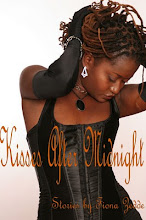
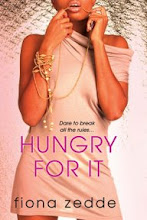
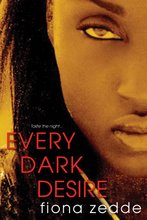

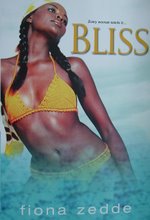

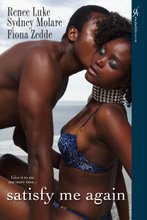
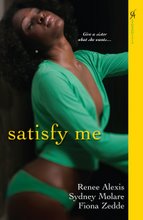



1 comment:
Checking in one two, one two!!! This was a great opportunity to learn about the beautiful awe inspiring Siren. Great questions, I she was published ten years ago. Then again, there were tons of things I didn't know until this very moment about LadySiren. Thank you for this Fiona, great questions. Very enlightening and refreshing.
Siren, you are inspiration by just being you. You live such a full life and I admire you for your freedom. I look forward to reading you, always. Love and Light
-Sunlyonis
Post a Comment